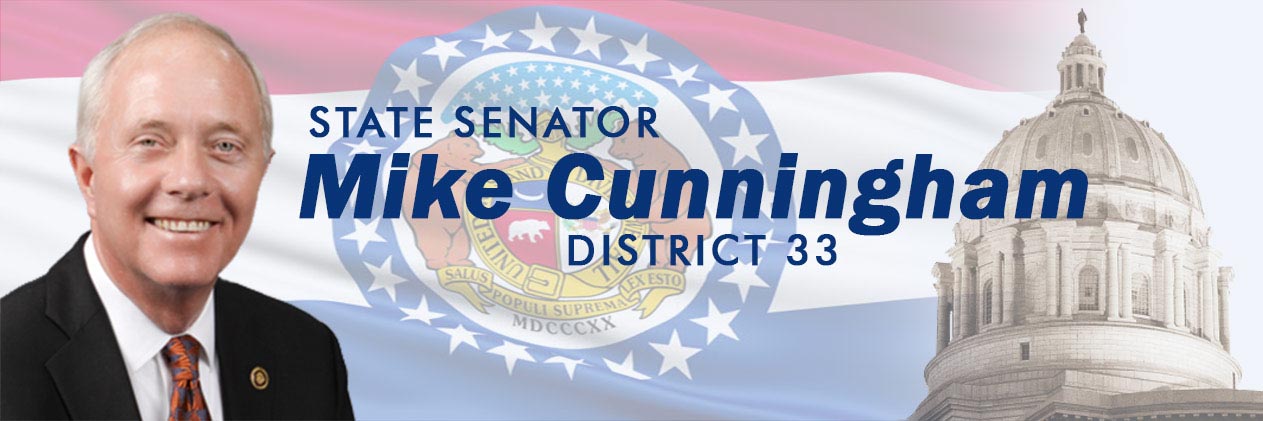
Legislative Column for April 11, 2019
The Legislature has only one responsibility that is mandated by the constitution. We must balance the state budget every year. We’re in the thick of that process now. As always, the demand for government services exceeds the supply of money to pay for them.
It seems to me, there are three possible solutions. We can cut spending, raise taxes or somehow grow the state’s economy. Growing the economy is clearly the least painful approach. More workers means more taxpayers. Better jobs equates to more state revenue.
But how do we attract good jobs to Missouri? We can brag about our central location, strong transportation network and the work ethic of our citizens, but sometimes that’s not enough. Employers increasingly look for state tax incentives when deciding where to locate or expand a business. If states are going to attract new businesses, they have to bring something to the negotiating table. In many cases, the offer is simple: You locate or expand a business in our state and add jobs, we will cut you a break on your taxes.
Recently, the Senate Appropriations Committee reviewed more than 60 different tax credit programs currently in place in Missouri. Some programs make locating a business more attractive. Others help with job training so that businesses can be more competitive. Still others address societal needs, such as the creation of housing for low-income individuals, by lowering the cost of providing those services. More than 30 states offer tax credit programs, and our incentives are necessary if we are going to compete with those other states.
Not surprisingly, there are always critics of tax credits. The state should not be in the business of “picking winners and losers,” they say. Frankly, I’m tired of hearing this charge. In almost every case, the winners are the men and women of Missouri who head off to a good job each morning. The winners are the families who have health insurance, paid vacations and other benefits. The losers are citizens of states that fail to attract a new facility.
The best of Missouri’s tax credit programs have proved to be good investments. The largest and most comprehensive of these is Missouri Works, which allows employers to retain a percentage of their payroll withholding tax in exchange for job creation and retention. Employers must pay good wages and provide benefits to qualify. Tax credits are not awarded if the business can’t document that jobs were created. This is not a program that pays for pie-in-the-sky promises.
A recent analysis shows that, on average, each dollar spent on Missouri Works tax credits resulted in nearly $3 of direct and indirect benefits over a 10-year period. More than 14,500 new jobs have been created by the program. The jobs training portions of the Missouri Works program produce an even greater return on investment, with every dollar creating $8 in benefits in a decade’s time.
Missouri Works is just one of many targeted programs that make Missouri a more attractive place to locate or grow a business. It’s easy to think of these programs as line items on a budget, but they’re really about people, families and communities.
When Burns and McDonnell expanded its world headquarters in Kansas City, it created thousands of jobs – many paying $100,000 a year or more. When North Carolina-based Nucor built a $250 million steel plant in Sedalia, they brought 250 jobs. Another 400 or so workers were employed building the plant. Closer to home, 24 employees of an engine remanufacturing company in Willow Springs owe their jobs to state tax credits. In West Plains, state incentives fueled the addition of 20 jobs at a defense contractor’s facility.
What critics fail to appreciate is that many of these high-paying jobs would not exist in Missouri at all without state tax credits. The jobs would not have been created or they would have gone elsewhere.
During his State of the State Address in January, the governor called on legislators to make workforce development a priority in 2019. Attracting new employers and growing existing businesses could not be more important to the state of Missouri. If we are going to meet the ever-increasing demands placed on state government, we must expand economic activity in the state. Tax credits and other incentives are a big part of making that happen. This is not a Democrat or Republican issue. This is a people issue.
As always, I appreciate it when groups from around Missouri and from our community back home come to visit me at the Capitol. If you would like to arrange a time to come and visit me in Jefferson City, or if you ever have any questions, please don’t hesitate to contact my Capitol office at (573) 751-1882.
